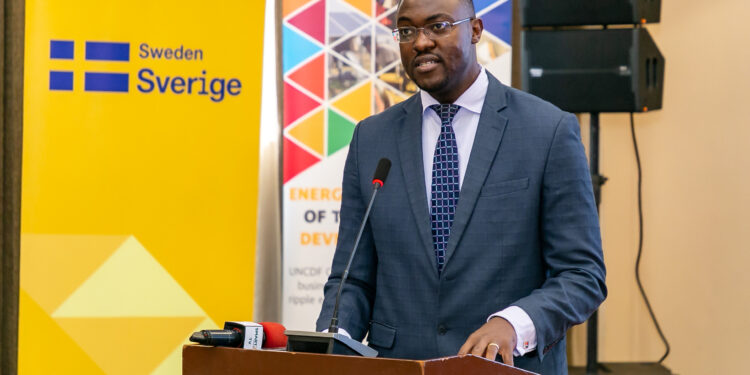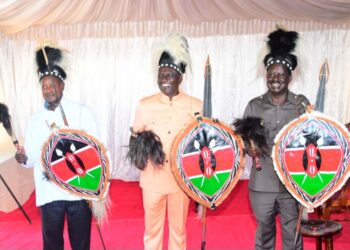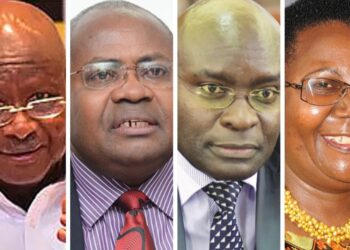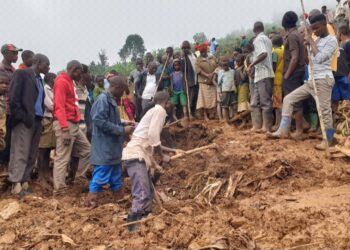Over the years, researchers in economics and scientific organizations have cautioned that there is a need for countries to adopt policies to promote renewable energy as part of a pivotal global struggle to fight climate change.
According to research, the adaptation of renewable energy solutions will not only save the climate but also reduce carbon emissions. They are also of many economic benefits to investors, governments, and consumers who need reliable low-cost electricity.
According to the Global Director for the World Bank’s Energy and Extractives Global Practice, Demetrios Papathanasiou, as a way of promoting the campaign for renewable clean energy solutions, the World Bank has in the last few years invested more than $8 billion in clean energy, renewable energy access, and related infrastructure. In Sub-Saharan Africa, the world Bank has invested over $2bn to promote clean energy.
In Uganda specifically, the Swedish government through the United Nations Capital Development Fund (UNCDF) had invested over Shs18.8bn to see that there is a transition from the use of fuel and firewood to the use of clean energy solutions by Ugandans.
Speaking on Wednesday at Protea Hotel, Kampala, during the sharing of results, impact and lessons from the Renewable Energy Challenge Fund (RECF), a project that started in 2016, Her Excellency the Ambassador of Sweden Maria Håkansson said that in 2016, there was limited access and affordability by the last mile customers in the energy value chain since only 27 per cent of Uganda’s population had access to electricity (58 per cent urban and 18 per cent in rural areas).
However, with the support of funds, Small and Medium Enterprises (SMEs) who had access to the fund became financially sustainable and scaled-up innovation and sales of Solar PVs and cooking solutions to the underserved populations particularly in rural areas.
She noted that because of these SMEs, over 780,000 clean energy products including fridges, water pumps, milling machines, cook stoves, briquettes, LPG and biogas have been sold,which have improved the life of Ugandans.
About 4.2 million people have benefited from either use of the products, income generation or employment.
“The intervention has stimulated other productive businesses like fish cooling, welding, milling machines, etc which I believe beyond providing needed energy products. This fund has created opportunities for earnings and employment. Currently, 41.5 per cent of Ugandans are estimated to have access to electricity with 71 per cent in urban and 32 per cent in rural areas. While most of this is reportedly due to an increase in hydropower generation and increased access network. I believe a significant contribution has been as a result of increased access to modern energy products and services like solar,” Ambassador Håkansson explained.
She noted that through RECF, 197,000 tonnes of wood fuel are estimated to have been saved and 1.49 million tonnes of carbondioxide avoided through the use of improved cooking solutions.
At the same event, the Assistant Commissioner Renewable Energy Department at the Ministry of Energy and Mineral Development, Mr Ssekitoleko Simon Peter said with RECF, Ugandans have benefited from 22 clean energy SMEs with half of these being Ugandan companies and 07 being women-owned and led.
“RECF partners have collectively employed over 560 full-time and part-time salaried staff and over 2,100 micro-entrepreneurs and commission-based sales agents. Of which 43 per cent are held by women and 44 per cent by youths. With regards to environmental impact, an estimated 1.49 million tonnes of carbondioxide have been avoided and over 197,000 tonnes of firewood saved due to the usage of improved cooking solutions.”
The Inclusive Digital Economy Energy Lead, Africa, Asia and Pacific, UNCDF, Mr Vincent Wierda also noted that access to energy supports poverty alleviation through fuel-efficiency gains leading to monetary and time savings, increased income generation through productive uses of clean energy, employment creation and improved labour productivity.
“Access to clean energy results in several health benefits. Customers, in our Uganda research initiatives, highlighted improved health as a key benefit they noticed with clean energy access. In addition, our investments have powered health clinics to ensure reliable electricity is available as they provide health services in their communities,” he said, adding that the energy program in Uganda is gradually improving currently focusing on cooking and lighting energy.
“The emergence of digital solutions and services plus new financing options has provided an incredible opportunity to expand access to clean sources of energy for those communities in most need.”
Uganda is richly endowed with natural resources. In terms of energy, the country has abundant biomass, including large quantities of non-woody biomass and water resources. It also has excellent potential as far as the generation of solar, geothermal and wind energy is concerned. Water and biomass make the biggest contributions to the energy demands of the country’s population.
However, the unsustainable and inefficient use of the available resources has, however, left the country with an insufficient energy supply.
Do you have a story in your community or an opinion to share with us: Email us at editorial@watchdoguganda.com













